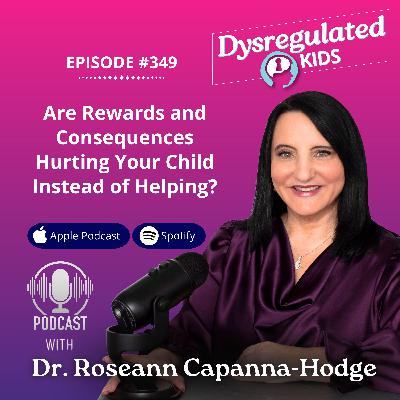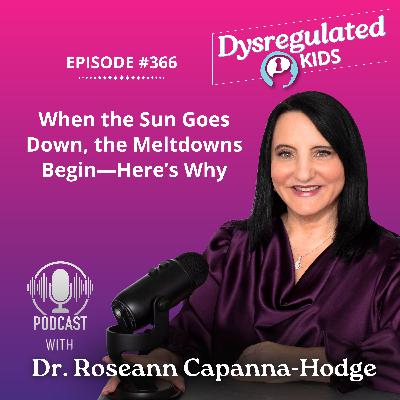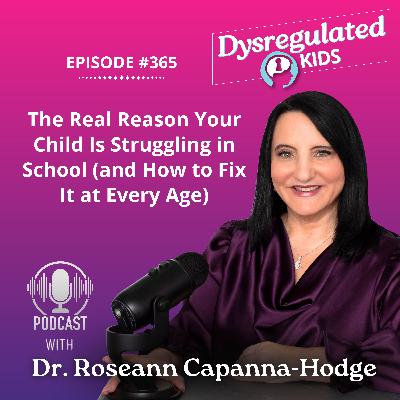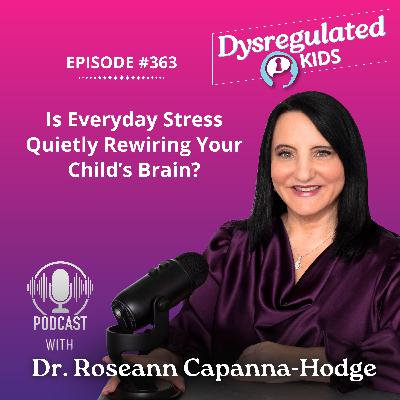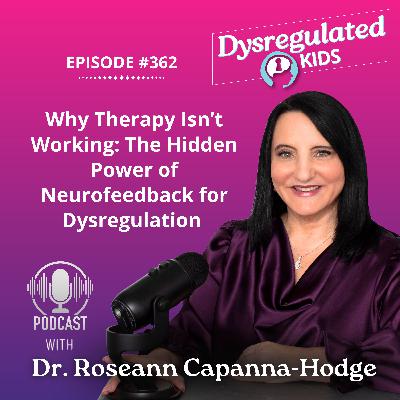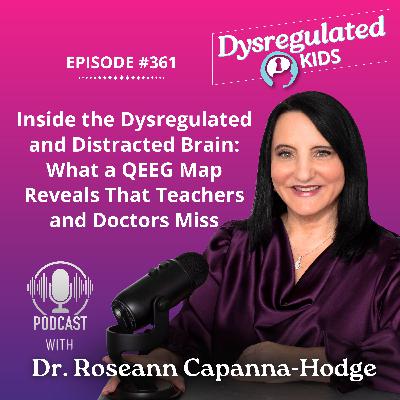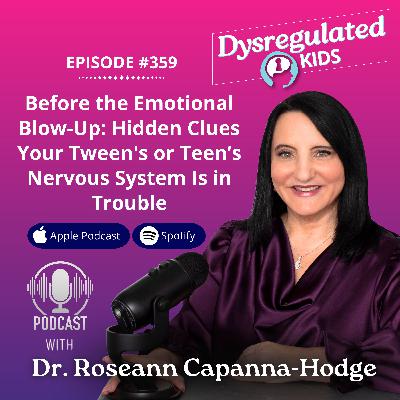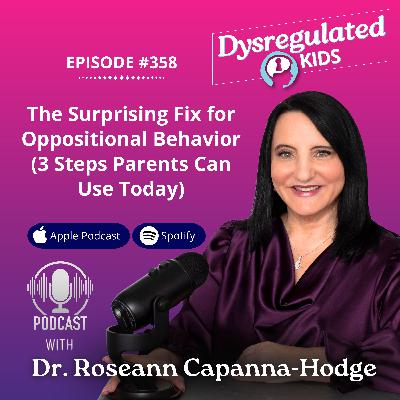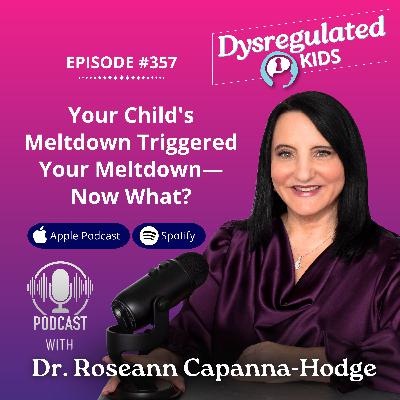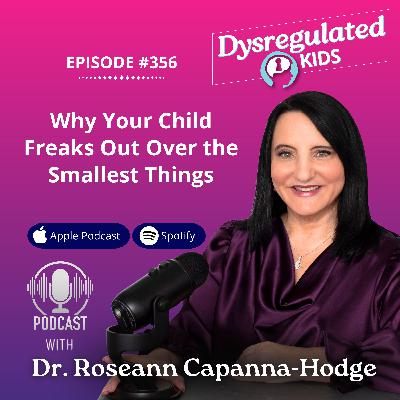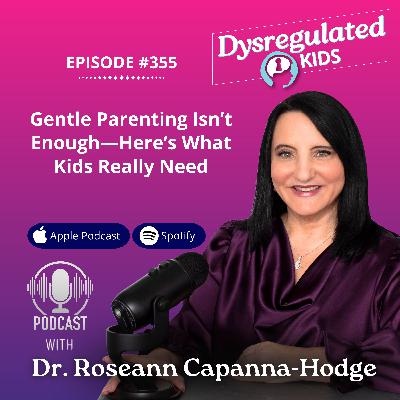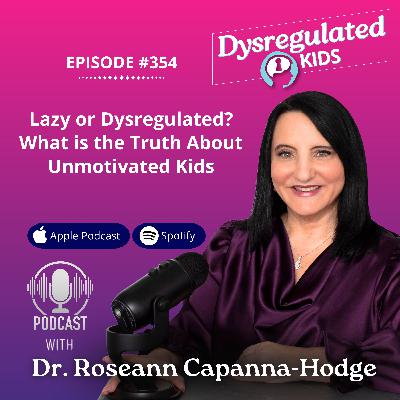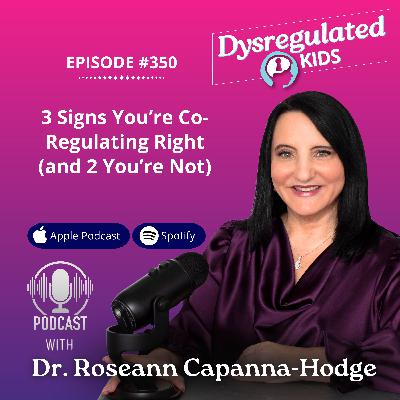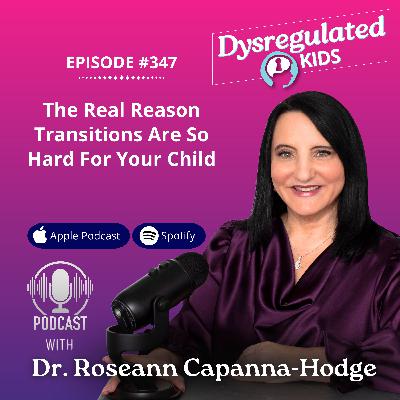349: Are Rewards and Consequences Hurting Your Child Instead of Helping?
Description
Parenting a child who doesn’t respond to sticker charts, time-outs, or threats can feel defeating. You’ve tried rewards, consequences, and everything in between—and still the meltdowns, backtalk, and battles keep happening. You’re not alone.
In this episode, I explain why rewards and consequences don’t land for dysregulated kids and what you can do instead. You’ll learn the brain science behind why your child can’t connect actions to outcomes in meltdown mode, plus practical strategies to shift from frustration to regulation.
Why don’t rewards and consequences work for my child?
Many parents wonder why their child’s behavior doesn’t change despite sticker charts, time out, or taking away toys. The truth is:
- A dysregulated brain can’t learn. When kids are in survival mode, their emotional brain takes over and logic shuts down.
- Rewards only stick when the brain is calm. Extrinsic rewards like tangible rewards or material rewards can’t replace intrinsic motivation.
- Consequences may backfire. Punishment often increases frustration, lowers a child’s self-esteem, and damages connection.
It’s not bad parenting—it’s a dysregulated brain. Let’s calm the brain first so your child can actually absorb lessons and develop lasting skills.
How do I respond when my child’s behavior feels out of control?
When your child’s actions push every button you have, it’s tempting to react with harsher discipline. But behavior is communication, and what looks like “bad behavior” is often a stress response.
Here’s what helps instead:
- Pause before reacting. Ask yourself: “Is my child regulated enough for this to land?”
- Co-regulate first. A calm presence, gentle tone, and predictable routines teach safe and appropriate behavior more than threats ever will.
- Connection before correction. When your child feels seen and safe, they’re far more likely to return to positive behaviors.
This shift helps your child learn that they’re not a “bad kid,” but a person developing the ability to manage emotions and actions.
Want to stay calm when your child pushes every button?
Become a Dysregulation Insider VIP and get the FREE Regulation Rescue Kit—your step-by-step guide to stop oppositional behaviors without yelling or giving in.
Go to www.drroseann.com/newsletter and grab your kit today.
What can I do to actually teach my child positive behaviors?
Kids don’t learn self-control through punishment—they learn through practice in everyday life when they’re calm.
- Model regulation. Show how adults handle frustration with empathy and consistency.
- Teach in calm moments. Coping skills, flexibility, and problem-solving only stick when your child is regulated.
- Use natural consequences. These are more effective than arbitrary punishments because they’re tied to specific behaviors.
For example, if your child forgets homework, the natural consequence is explaining to their teacher—not losing screen time.
- Encourage effort, not just results. Praise hard work, practice, and small successes to build a child’s self-esteem and intrinsic motivation.
Remember, positive reinforcement doesn’t mean bribery—it means helping your child connect actions to outcomes in a way that builds confidence and responsibility.
Want real tools that actually work in the heat of a meltdown? Inside Quick CALM, you’ll learn my proven CALMS™ Method, get printable routines, and grab cheat sheets that make co-regulation doable every single day.
How can I create more calm and cooperation in my family?
If every day feels like a battle over school, siblings, or simple tasks, know this: It’s gonna be OK. You can create more peace with consistent regulation-first strategies.
- Build predictable routines. Structure reduces anxiety and surprises for kids who struggle with change.
- Practice resets. Movement, snacks, or quiet breaks after school can help prevent meltdowns.
- Focus on relationship, not control. Words of encouragement, respect, and empathy create trust and strengthen your bond.
- Stay consistent. Kids thrive when parents respond in a steady, predictable way—even when emotions are high.
🗣️ “When parents regulate first, kids feel safe enough to learn, grow, and practice desirable behaviors in everyday life.” – Dr. Roseann
Rewards and consequences only work when the brain is calm. For dysregulated kids, regulation isn’t just helpful—it’s foundational. Calm first, teach later. With patience, structure, and connection, you can guide your child toward lasting change and a stronger sense of self.
Every child’s journey is different. That’s why cookie-cutter solutions don’t work.
Take the free Solution Matcher Quiz and get a customized path to support your child’s emotional and behavioral needs—no guessing, no fluff.
Start today at www.drroseann.com/help
FAQs
How do I stop rewarding bad behavior?
You don’t need to ignore your child—you need to recognize the stress underneath. Focus on connection before correction, and teach positive behaviors when they’re calm. Rewards work only when your child’s brain feels safe.
Why does my child act worse after a consequence?
Consequences can trigger deeper dysregulation. In meltdown mode, kids literally can’t connect behavior to outcome. Calm their nervous system first—then talk about choices and solutions when they’re able to listen.
How can I build my child’s self-esteem without rewards?
Praise effort, not just results. Encourage practice, problem-solving, and everyday successes. Building self-esteem comes from consistency, empathy, and natural consequences—not from toys or sticker charts.
What should I say in the moment of a meltdown?
Keep it simple and calm. Try: “I’m here for you. It’s OK to feel upset.” Short, steady words show safety and help your child regulate faster than lectures or threats.

